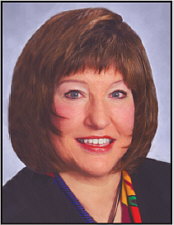Faster than a speeding bullet! More powerful than a locomotive! Able to leap tall buildings in a single bound! It’s Superstar!
Do you manage a star performer? Bright, ambitious, and results-driven, s/he runs rings around your less-super employees. In sales, she surpasses quotas without breaking a sweat. In technology, he’s superior to everyone, even you.
But can you spell “mixed blessing?” Star performers do make your department shine, but they lack the iconic Superman’s interpersonal skills. T.E.A.M. may stand for “Together Everyone Achieves More,” but the leitmotif of these star performers is A.L.O.N.E. – “Achievers Love Obliterating Nearly Everyone.”
It’s not surprising. Most of these Lone Rangers have risen through the ranks via a single-minded, non-stop, hard-charging regimen of producing, achieving, and succeeding.
Meanwhile, they antagonize or demoralize coworkers and direct reports, with their arrogance and insensitivity. Thus, you risk losing your other capable contributors, when they refuse to suffer through one more day with the preening superstar.
Don’t just look the other way and hope for the best. Instead, redirect the behavior of your super performers, so that both they and the rest of your employees can thrive and shine.
1. Be clear about your culture during the hiring process.
If yours is a collaborative, relationship-based culture, make that abundantly clear to candidates. Consider conducting an assessment to learn if applicants are team players, how they prefer to give feedback and be recognized, etc. And explain your company values to applicants and new hires: Where does “driving for results” stand, relative to “ensuring customer satisfaction” or “cooperating with teammates?”
2. Hold superstars accountable not only for performance targets but also for how they meet them.
How they treat others is as important as their revenue-generating ability. Quantify relationship behaviors on performance appraisals, and remind them that to advance in the company, they’ll need strong leadership skills.
3. Hold up a mirror with 360-degree feedback.
The frank opinions of those above, below, and beside them will help superstars realize the results of their actions. Follow up the survey with coaching: Help them identify their “key stakeholders” – people important to their career. Advise them to spend more time getting to know people at lunch and company events, vs. communicating via email.
4. Recognize team performance, not just star performance.
You may need to remind star performers of the long-term benefits of sharing credit, rather than taking full credit.
5. Isolate their role.
Often egotistical superstars only change their ways after crashing into a few walls or missing an expected bonus. If they still don’t improve, consider modifying their role to become more of an expert, individual contributor or one-person function, to spotlight their best qualities and minimize their negative impact on the rest of the organization.
Today, being bright, innovative, and results-oriented isn’t enough; an awareness of how our actions impact others and superior interpersonal skills are also essential. Be prepared to risk losing a superstar, in your (to return to Superman once again) “never-ending battle for truth, justice, and the American way!”
If your organization would like a keynote speech or training program on this or other topics, contact Jeanne Baer at (402) 475-1127 or visit me on the web at http://www.cts-online.net.
Copyright 2011 Creative Training Solutions

